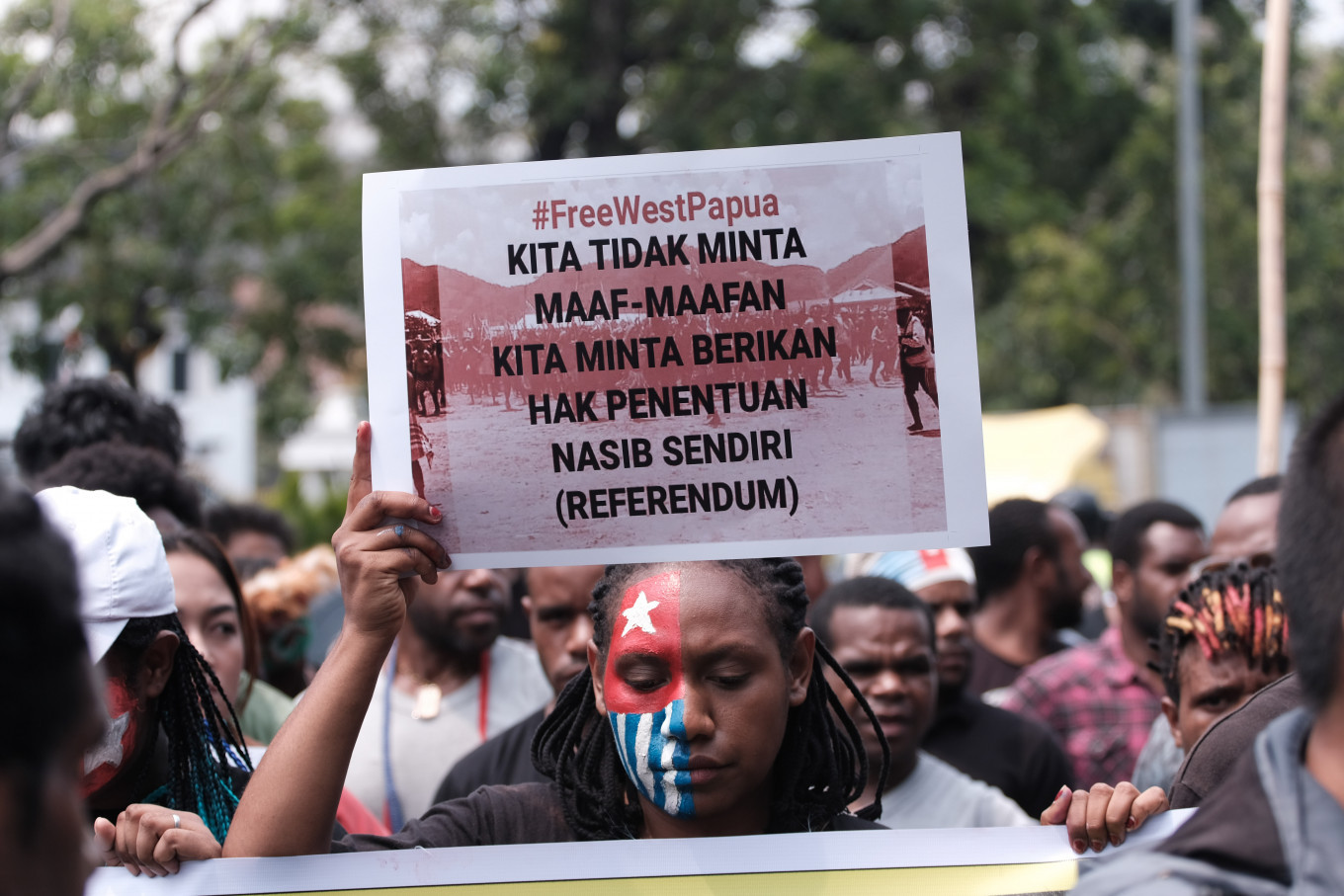The Jakarta State Administrative Court (PTUN) ruled on Wednesday that it was unlawful for the government to shut down the internet in Papua and West Papua during heightened security tensions caused by antiracism protests in the two provinces last year.
The panel of judges found that the government had violated the 1959 State Emergency Law by imposing the internet blackout after it failed to prove during the court hearings that Indonesia was in a state of emergency that required the authorities to shut down the internet.
The panel of judges also ruled that any policy that limited people’s right to information should be made in accordance with the law and not merely based on the government’s discretion.
The Jakarta State Administrative Court (PTUN) ruled on Wednesday that it was unlawful for the government to shut down the internet in Papua and West Papua during heightened security tensions caused by antiracism protests in the two provinces last year.
The panel of judges found that the government had violated the 1959 State Emergency Law by imposing the internet blackout after it failed to prove during the court hearings that Indonesia was in a state of emergency that required the authorities to shut down the internet.
The panel of judges also ruled that any policy that limited people’s right to information should be made in accordance with the law and not merely based on the government’s discretion.
“The court declares [the internet blackout] was a violation of the law by government bodies or officials,” presiding judge Nelvy Christin said in reading out the ruling during a livestreamed hearing on Wednesday.
Antiracism protests had gripped the country from August to September last year, after Papuan students were abused with racial remarks in Surabaya, East Java. The incident prompted nationwide protests supporting the Papuans and the provinces’ pro-liberation movement.
The government started imposing internet restrictions in Papua and West Papua on Aug. 21, 2019 on the pretext of security, shortly after protests escalated into riots across the two provinces, reportedly leading to the deaths of dozens. The internet muzzle lasted until the beginning of September.
The internet shutdown sparked outrage among residents and activists as it restricted access to information about conditions in the restive region, which saw thousands of additional security personnel deployed as the riots developed. The policy also severely crippled news reporting in the region.
The court found that the government had blocked data streams in the country’s two easternmost provinces in at least three phases. It throttled back internet access on Aug. 19 between 1 p.m. and 8:30 p.m., shortly after widespread protests in Surabaya.
It later imposed another internet blackout between Aug. 21 and Sept. 4, affecting 29 cities and regencies in Papua and 13 cities and regencies in West Papua. It imposed again and expanded the ban to six cities and regencies—Jayapura, Jayapura City, Mimika and Jayawijaya in Papua, and Sorong and Manokwari in West Papua—from Sept. 4 to 9.
The government claimed in court that the internet shutdown was in line with the Electronic Information and Transactions (ITE) Law. However, judges said the law could only be enforced to block access to electronic information and documents violating the law, not the entire internet.
The bench also argued that fake news should be handled by using provisions in the Criminal Code or blocking the accounts that spread such false information, rather than shutting down internet access in its entirety.
Internet restrictions were introduced for the first time as part of the government’s security measures during postelection riots in Jakarta in May last year. Three days of riots in the capital, which occurred only days after President Joko “Jokowi” Widodo was officially announced the winner in the 2019 presidential election, left at least eight people dead.
The government had blocked social media and instant messaging in the capital, arguing that it was an effort to block fake news, videos and pictures relating to the riots.
The Alliance of Independent Journalists (AJI), the Southeast Asia Freedom of Expression Network (SAFEnet) and the Indonesian Legal Aid Foundation (YLBHI), among other groups—filed in January the lawsuit against the President and the Communications and Information Ministry on the Papua internet ban.
YLBHI activist M. Isnur hoped that higher courts would uphold the ruling, should the defendants appeal the case. “[This case] shows that the courts are still reliable and there’s hope in them when seeking justice, we appreciate that,” Isnur told The Jakarta Post on Wednesday.
Wahyudi Djafar, an Institute for Policy Research and Advocacy (ELSAM) researcher, said that the court ruling should be followed by legislation, preferably a revision of the ITE Law, that completely effaced the possibility of a total internet blackout.
“Considering the importance of the internet today, a blanket internet block is not tolerable even in a state of emergency,” Wahyudi told the Post. “An internet blackout will only have implications for other human rights violations.”
United Nations High Commissioner for Human Rights Michelle Bachelet previously expressed concerns over the blackout, saying “blanket internet shutdowns are likely to contravene freedom of expression and limiting communications may exacerbate tensions”.
Communications and Information Minister Johnny G. Plate said that the government would only respond to the official court ruling, which he claimed he had not yet received.
“We respect the court’s decision, but we also reserve our legal rights as defendants. We will consult with the state’s legal team to determine the next step,” Johnny said.
He went on to say that the internet blackout was enforced to prevent the spread of hoaxes that could exacerbate tensions in the provinces at that time.

